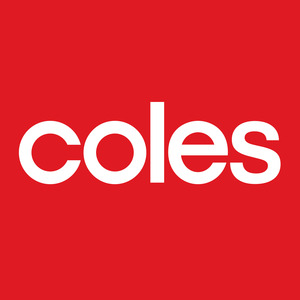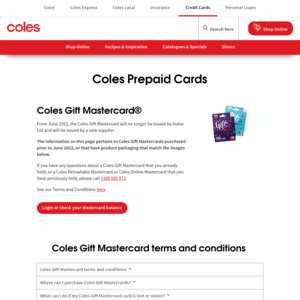From the upcoming catalogue sale starting this Wednesday 2nd December.
Coles Gift Mastercard:
Gift Card Purchase Fee: payable when you purchase a Gift Card. You have
to pay this amount in addition to the initial value of your Gift Card. Refer to
the sections above about “Obtaining your Gift Card” - $5.00 per Gift Card







Is it one bonus per account or one bonus per type of card?